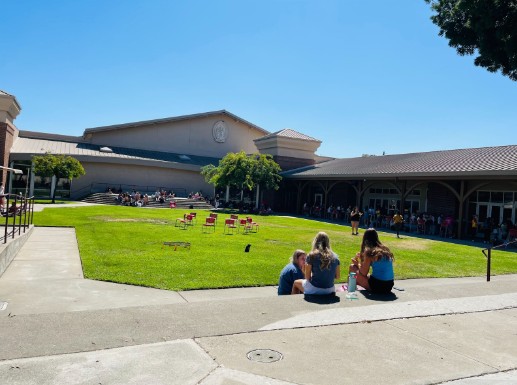Eight months after it took effect, a California law designed to increase the ranks of substitute teachers remains the subject of divided opinions in regards to its effectiveness in addressing the state’s teacher shortage.
In recent years, exacerbated by the Covid-19 pandemic, California has seen the ranks of its teachers significantly decline. In 2021-2022, the state suffered a 16% drop in the number of teachers receiving credentials, according to the Commission on Teacher Credentialing.
This trend has intensified the need for substitute teachers, a problem the new law seeks to address.
The statute, Senate Bill 1397 (SB 1397), temporarily waives the mandatory basic skills requirement, formally referred to as the CBEST, for individuals aspiring to become substitutes in California. For the next nine months, to obtain an emergency 30-day substitute teaching permit, an applicant will need nothing more than a fingerprint scan and a college degree. The waiver will be in effect from through June 30, 2024.
Shana Just, the Sacramento City Teachers Association high school director, said the bill is important.
“I think SB 1397 was necessary because there are large numbers of unfilled teaching positions that need substitutes and because large numbers of teachers have left the profession since COVID,” Just said. “Many substitutes were retired teachers and a large percentage never returned to subbing post-COVID.”
The measure wasn’t California’s first effort at making substituting seem more appealing, and districts like the Sacramento City Unified School District have been trying to increase the pool of teacher candidates for some time.
Tiffany Smith-Simmons, SCUSD’s director of talent management, said, “We required analysis of your transcript, saying if you had certain courses and a grade of B or better then you could meet the basic skills requirement. And even after really publicizing and offering that, we still found that we didn’t have the number of subs we needed.”
Despite the bill’s passage, Smith-Simmons said other issues might arise in the coming months when it comes to school staffing.
“Lots of parents get a little concerned when schools start talking about a substitute in their child’s class,” Smith-Simmons said. “They automatically assume that a substitute isn’t qualified to adequately teach their student. There will be a lot of back and forth if and when they seek to make the bill permanent.”
In addition to her role as the SCUSD’s specialist for culture, climate and social justice, Candice Evans is also the parent of a high school senior at Cosumnes Oaks High in the Elk Grove Unified School District.
“I’m indifferent to the bill,” Evans said. “I’m not really concerned about the substitutes, because substitutes can just be there – even though in that one or two days, they can cause harm.”
From an educational and academic perspective, Evans said the bill already has affected both administration and students.
“I see this from the educational sense, ensuring that we have enough adults to be able to sit in and cover classrooms,” she said.
However, her daughter Joy said there are potential problems that could result from reducing the qualifications of adults who work in K-12 classrooms.
“I see this as a negative,” she said, adding that substitutes “just sit filling in” more often than not. “I guess it’s mainly more so a thing about safety” she said. “It causes me to question the fact they don’t have a fuller background in education.”
Smith-Simmons has heard these concerns before. She said parents and students should be confident that substitute teachers have been thoroughly vetted before working in public school classrooms – even with the reduction in what’s required to get the job.
“To ensure the applicant is a worthy candidate for the job, we ask them about their experience working with children,” Smith-Simmons said. “We ask them about things they may encounter in our schools like, ‘What would you do if you witness a student being a victim of either some kind of injustice or discrimination?’ ”
As of September, an average substitute teacher in California makes $268 a day, which is 120% above the national average. In Sacramento City Unified, the daily pay rate for substitutes was recently raised to $355 per day, according to a joint press release from SCUSD and SCTA.
“I think the increase in the sub pay rate will definitely benefit the district,” said Just, the SCUSD high school director. “It makes subbing in Sac City more attractive. It should increase the number of applicants and allow the district to be more particular about who they hire as a substitute. That should also raise the quality of substitutes, which benefits students.”
However, Smith-Simmons said the decision to become a substitute teacher should come down to more than just money.
“I hope that people would consider more than just an increase in a daily wage,” Smith-Simmons said, “but (also) consider the other things that go along with the compensation of being a teacher.”








